I have to admit, it’s a source of some pride for me to say that at 6 and 12 (almost 13) years old, neither of my dogs have ever needed to have their teeth cleaned by the vet (knock on wood). Their oral health is something I’ve always taken seriously. Did you know that dental health can impact your pet’s overall health? You might not think that a bit of tarter on your pet’s teeth is a huge deal. However, dental disease, when left untreated, can lead to infections that can even spread to your pet’s vital organs. Read more to learn how to select the right dental health products for your pet.
Post Contents:
- 1 It’s a commonly believed myth that normal kibbled foods keep your pet’s teeth clean.
- 2 If kibble doesn’t keep our pets’ teeth clean, are their any products out there that do?
- 3 What Do I Personally Use to Keep Kit’s and Fen’s Chompers so Pearly White?
- 4 I’d say the piece de resistance of my doggy oral health regime has always been super basic – a toothbrush and toothpaste.
- 5 In addition to brushing and raw meaty bones, for awhile now we’ve been using ProDen PlaqueOff Products.
- 6 Fen, and especially Kit, love to chew, so I do use a variety of other types of chews too!
- 7 Use Your Best Judgement When Selecting What’s Best for Your Pet!
It’s a commonly believed myth that normal kibbled foods keep your pet’s teeth clean.
If only that were the case! Wouldn’t life just be a little bit easier if, instead of brushing and flossing our own teeth, we could just eat a few crunchy snacks and be done with it? Unfortunately that doesn’t work for humans, and it doesn’t work for our pets either! Most kibbles contain carbohydrates that actually feed, and thus increase, the bacteria that causes plaque. Kibble, while crunchy, is designed to break apart quickly when our pets chomp down on it. It doesn’t make contact with the surfaces of the teeth long enough to scrape off any significant amounts of plaque.
If kibble doesn’t keep our pets’ teeth clean, are their any products out there that do?
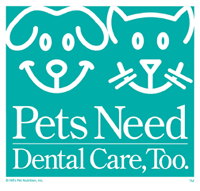 If you’re looking for something you can feed your pet to help keep his/her teeth clean, considering offering appropriately sized raw meaty bones or healthy chews. When offering raw meaty bones, avoid cooked bones, and the weight bearing bones of large animals. Cooked bones can splinter and injure your pet. Large, dense weight bearing bones have been known to chip teeth. Both my dogs are on the small/medium side (around 17 – 18 lbs). For dogs their size, I’d consider things like chicken wings or necks, quail, duck wings, necks, feet, or pork tails.
If you’re looking for something you can feed your pet to help keep his/her teeth clean, considering offering appropriately sized raw meaty bones or healthy chews. When offering raw meaty bones, avoid cooked bones, and the weight bearing bones of large animals. Cooked bones can splinter and injure your pet. Large, dense weight bearing bones have been known to chip teeth. Both my dogs are on the small/medium side (around 17 – 18 lbs). For dogs their size, I’d consider things like chicken wings or necks, quail, duck wings, necks, feet, or pork tails.
But hey, I get it. Not everyone is totally on board with the whole ‘feeding dogs raw meat’ thing. That’s ok. If raw meaty bones aren’t for you and your dog, or you want to up the anti and use products in addition to raw bones, be sure to check out the Veterinary Oral Health Council (VOHC for short) website.
The VOHC website has super convenient lists of products, listed separately for cats and dogs, that have been proven to help reduce plaque and tartar in pets. For dogs, they list product types such as chews, water additives, oral gel sprays, toothpastes, toothbrushes, and wipes. Luckily for us modern day pet owners, there are lots of options when it comes to our pets’ dental care! I know not every dog is super compliant when it comes to using good, old fashion, toothbrushes and toothpaste. Perhaps, if your dog is one of them, you could instead consider using dental chews, a water additive, or dental spray instead?
What Do I Personally Use to Keep Kit’s and Fen’s Chompers so Pearly White?
Variety is the spice of life, or so they say. When it comes to the health of my own dogs, I very rarely find myself religiously sticking to one, and only one, product for an extended amount of time.
I used to feed Kit and Fen a raw diet that included raw meaty bones on a regular bases. However, I am not currently feeding exclusively raw. My Kitsune has always had somewhat of a sensitive stomach. I notices that, as he gets older, he just didn’t seem to tolerate raw as well as he used too. So I switched both my dogs to home cooked. I do, however, still offer the occasional raw meaty bone. I can tell how much it does for their teeth, but they also just downright enjoy them. These days, though, they’re lucky if they get raw meaty bones a few times a month.
This post contains affiliate Amazon links. If you make a purchase using one of our links we will receive a small commission at no additional cost to you.
I’d say the piece de resistance of my doggy oral health regime has always been super basic – a toothbrush and toothpaste.
Way back when Kit was a pup, his then vet recommended I use enzymatic doggy toothpaste, and that’s what I’ve used ever since. The enzymes are supposed to help in a number of ways, including removing plaque biofilm, as well as promoting the survival of beneficial bacteria while reducing harmful, plaque causing bacteria. As for toothbrushes – there are a number of different types of toothbrushes made for dogs. I’ve found that baby toothbrushes work just as well, sometimes better, for smaller dogs. Bonus points, baby toothbrushes also often come is silly/adorable designs!
I’d like to say that I brush Kit’s and Fen’s teeth everyday, but that would be a lie. I aim to brush their teeth at least 3 times a week, with more being better. Some nights I’m lucky I brush my own teeth before falling into bed! Never mind brushing my dogs’ teeth!
 In addition to brushing and raw meaty bones, for awhile now we’ve been using ProDen PlaqueOff Products.
In addition to brushing and raw meaty bones, for awhile now we’ve been using ProDen PlaqueOff Products.
ProDen makes a powdered supplement that you can add to your pets’ food, but both of my dogs (yes, even the ever picky Fenrir) especially love their Dental Care Bones. ProDen products’ active ingredient is a type of sea kelp. It has been shown to have the ability to dissolve tartar and soften plaque build-up, making it easier to remove through chewing or regular brushing. Just a note – ProDen and other products containing kelp are not recommended for pets currently being treated for hyperthyroidism.
Fen, and especially Kit, love to chew, so I do use a variety of other types of chews too!
Between Fen being super picky and Kitsune having a sensitive stomach, I’ve found that when it comes to chews, moderation is key. Bully sticks are a fan (dog) favorite and, although they gross my poor fiance out, my dogs do well with them. These rawhide free Porkchomp Chews are a good compromise, in that my dogs still enjoy and do well with them, and they don’t repulse my partner. Lately we’ve also been using these TropiClean Fresh Breathe dental toys. Kitsune likes the clean teeth gel that comes with them (Fen doesn’t). I also found that I put other things, like yogurt or peanut butter, into the toy and the dogs work at it enough that I’m pretty sure it’s probably still helping their teeth. Also, every once in awhile I’ll refill Kit’s and Fen’s Everlasting treat ball. The unique way they work at the toy to get at the treat really seems to help keep their incisors (the little teeth in the front) clean.
I’m starting to think I shouldn’t give myself so much credit for my dogs’ teeth being in such good shape. They really like to chew!
Use Your Best Judgement When Selecting What’s Best for Your Pet!
Different dogs will do best with different types of dental care products. Feeding a raw diet and/or giving your dog plenty of high quality chews won’t necessarily mean that you’ll be able to get away with not brushing your pet’s teeth. Kitsune especially loves to chew. I still have to brush his teeth to prevent tartar build-up, especially on his canine teeth. When selecting chews, it’s usually recommended to stay away from things that are too hard. Anything that is harder than your dog’s teeth has the potential to cause cracks, chips, and fractures. Always keep your dog’s chewing habits in mind too. If your dog tends to gulp food, then many common types of chews may pose a higher chocking risk to your particular dog.
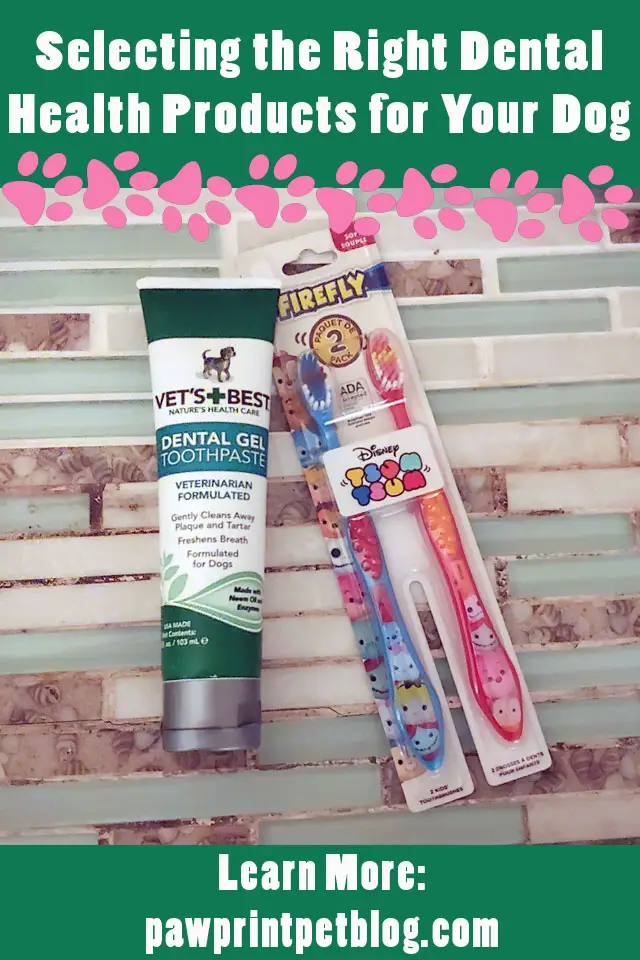 Small dogs are somewhat notorious for having bad teeth. This is thought to be because of their more compact jaws, which often leads to overcrowding of their teeth. Thankfully, through a multi-pronged approach I’ve found a care schedule that works really well for my own dogs. Remembering to brush their teeth on a regular basis can sometimes feel like a pain. The dental chews I’ve been using aren’t exactly cheap – but they’re cheaper and much less stressful to deal with than having regular cleanings under anesthesia at the vet would be! I consider dental health to be an important part of overall health care. As an added benefit, my dogs both get super excited when it’s time to take care of their teeth. Clean teeth means nice fresh breathe when they’re showering me in puppy kisses!
Small dogs are somewhat notorious for having bad teeth. This is thought to be because of their more compact jaws, which often leads to overcrowding of their teeth. Thankfully, through a multi-pronged approach I’ve found a care schedule that works really well for my own dogs. Remembering to brush their teeth on a regular basis can sometimes feel like a pain. The dental chews I’ve been using aren’t exactly cheap – but they’re cheaper and much less stressful to deal with than having regular cleanings under anesthesia at the vet would be! I consider dental health to be an important part of overall health care. As an added benefit, my dogs both get super excited when it’s time to take care of their teeth. Clean teeth means nice fresh breathe when they’re showering me in puppy kisses!
Post below, what do you do to maintain your pet’s dental hygiene? If the answer is nothing, remember that it’s never to late to start!

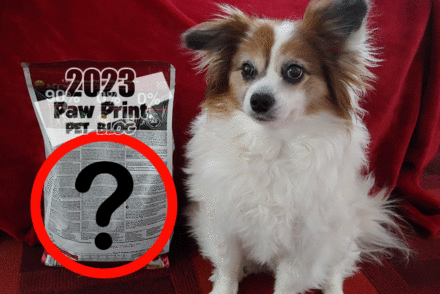
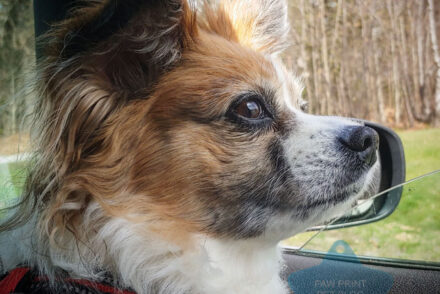
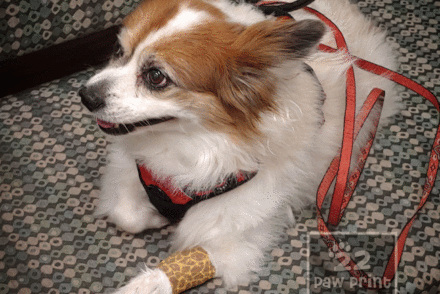

12 Comments
Dental health is so important! Yep, I must admit a very long time ago when I was a first-time cat mom (in my teens), I was under the delusion that treats labeled “dental treats” were enough to keep my cat’s dental health in check. WRONG. I learned that I needed to brush their teeth and make a routine of it including annual vet visits to help ensure they maintain healthy teeth and gums.
To be fair, I imagine it’s even harder to brush a cat’s teeth than a dog’s!
That’s great that Kit and Fen haven’t needed to have their teeth professionally cleaned. My dog, Henry hasn’t had to have his teeth cleaned either. My goal is to keep him from having to go under anesthesia. I use a daily dental spray, which seems to be working great. I think we all need to find what works best for our pups and ourselves. I love your rotation of dental tools. That’s a good idea! Here’s to continued great dental health for our pups!
I’m the same way – I really don’t want my two to have to go under anesthesia unless they really, really have too. I tried a dental spray that came highly rated once, but it upset Kit’s stomach. For sure each pet is an individual, and part of our job as their caretakers is to find what works best for them!
I remember a Blogpaws chat years ago where someone was positively evangelical about brushing your cat’s teeth. I said it might work for dogs, and it would work for kittens, starting them doing it from the get-go, but if I tried this on my cats I am not sure how popular I might be.
That said, dental care is vital and if you can start brushing and keep it as part of your regular dental health routine, it will make a huge difference to your pets life.
Oh dog’s are similar – I think it’s really important to get them used to having their teeth brushed as puppies if you want to be able to do it when they’re adults. I was lucky in that since in that I’ve had both my boys since they were pups, and I luckily new about the importance of teeth brushing when they were little. There are other products for cats too, if you can’t brush their teeth. I believe the ProDen Plaque off powder that I like using with my dogs is marketed for cats too. At least there are options out there for anyone who can’t brush.
Even though it’s horrible as food, the one product that worked for cleaning teeth was Hill’s dental diet. But I just used it for dental treats, not food.
We brush our dogs’ teeth daily, and I find that raw meaty bones go a long way in dental maintenance.
I’m going to have to research how dental diets work. Although I have to admit between Kit’s food sensitivities and how picky Fen is, I’m not super interested in using dental diets for my own dogs. Thankfully the dental chews, raw meaty bones, and teeth brushing has been enough to keep my boys’ teeth clean.
Dental health is very important! My dogs love their dental chews. I wish I had known to brush their teeth when they were puppies.
Right! I think there are a lot of pet owners who don’t know about brushing their teeth at first, and it’s so much easier to get them used to it when they’re young. Although dogs are pretty smart, I bet if you took your time you might be able to get an adult accustomed to it too.
I had every intention of brushing my cats’ teeth, but I failed. I’ve been extremely lucky that both are 10 years old and neither have needed a professional teeth cleaning at the vet yet.
[…] is ideal too. If you, and/or your dog, aren’t ready to jump right to regular teeth brushing, consider at least offering healthy dental chews and perhaps using a dental spray while you work towards getting your canine pal used to his/her toothbrush. Depending on how often […]